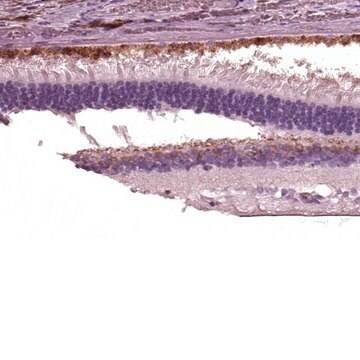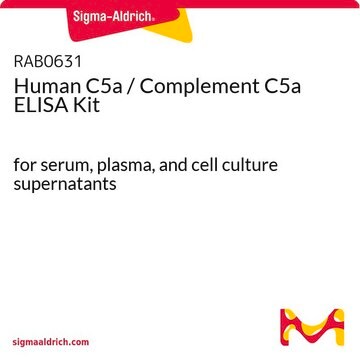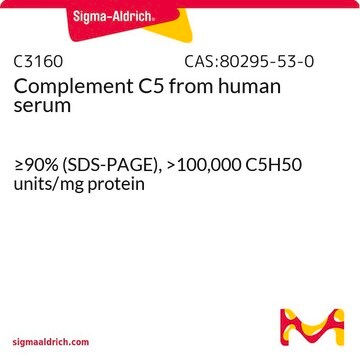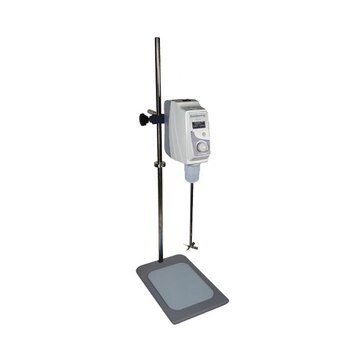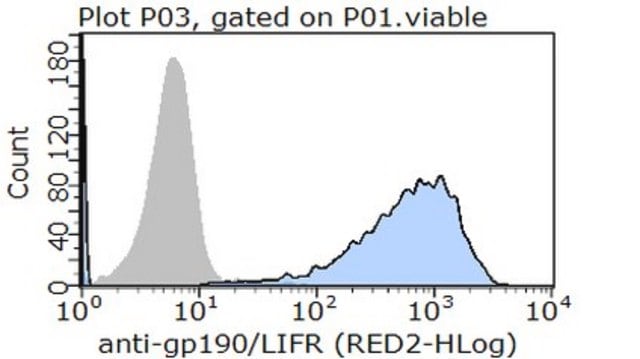MABF1977
Anti-phospho-C5aR/CD88 (Ser334) Antibody, clone 32-G1
clone 32-G1, from mouse
Synonym(s):
C5a anaphylatoxin chemotactic receptor 1, C5a anaphylatoxin chemotactic receptor, C5a-R, C5aR, CD88
About This Item
Recommended Products
biological source
mouse
Quality Level
antibody form
purified antibody
antibody product type
primary antibodies
clone
32-G1, monoclonal
species reactivity
human
technique(s)
ELISA: suitable
immunofluorescence: suitable
western blot: suitable
isotype
IgG1κ
NCBI accession no.
UniProt accession no.
shipped in
ambient
target post-translational modification
phosphorylation (pSer334)
Gene Information
human ... C5AR1(728)
General description
Specificity
Immunogen
Application
Inflammation & Immunology
Enzyme Immunoassay Analysis: A representative lot detected phospho-C5aR_CD88 (Ser334) in Enzyme Immunoassay applications (Pollok-Kopp, B., et. al. (2007). J Biol Chem. 282(7):4345-53).
Quality
Western Blotting Analysis: 1:20,000 of this antibody detected phospho-C5aR_CD88 (Ser334) in a mixture of two C5aR peptides corresponding to amino acids 327-344 (phosphorylated at Serine 332, 334, and 338) and amino acids 1-31, conjugated to BSA vs. irrelevant peptides conjugated to BSA (negative control).
Target description
Physical form
Storage and Stability
Other Notes
Disclaimer
Not finding the right product?
Try our Product Selector Tool.
Storage Class Code
12 - Non Combustible Liquids
WGK
WGK 1
Flash Point(F)
Not applicable
Flash Point(C)
Not applicable
Regulatory Listings
Regulatory Listings are mainly provided for chemical products. Only limited information can be provided here for non-chemical products. No entry means none of the components are listed. It is the user’s obligation to ensure the safe and legal use of the product.
JAN Code
MABF1977:
Certificates of Analysis (COA)
Search for Certificates of Analysis (COA) by entering the products Lot/Batch Number. Lot and Batch Numbers can be found on a product’s label following the words ‘Lot’ or ‘Batch’.
Already Own This Product?
Find documentation for the products that you have recently purchased in the Document Library.
Our team of scientists has experience in all areas of research including Life Science, Material Science, Chemical Synthesis, Chromatography, Analytical and many others.
Contact Technical Service